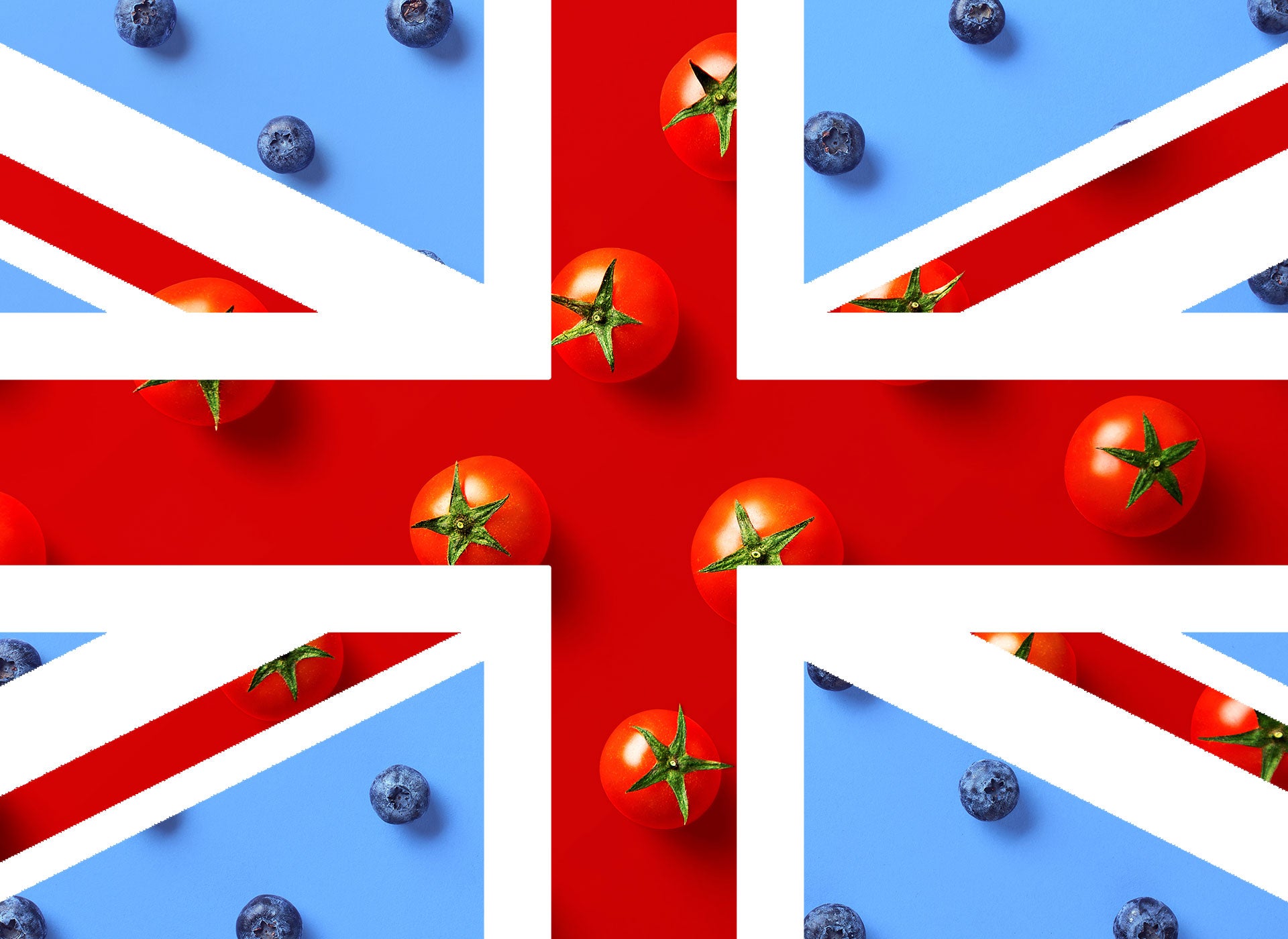
In his first speech as UK Prime Minister, Boris Johnson laid out his vision for post-Brexit Britain, and while there were many predictable points, the issue of GM crops made an unexpected appearance.
“Let’s start now to liberate the UK’s extraordinary bioscience sector from anti genetic modification rules,” said Johnson. “And let’s develop the blight-resistant crops that will feed the world.”
The comments refer to the European Union’s stance on genetic modification (GM) of foods. While GM crops are often perceived to be illegal in the union, the reality is a little more complex.
GM foodstuffs are not banned in Europe, but they do have to pass very stringent safety checks both at the trial and marketing stage of development, making it extremely difficult to successfully launch new GM products in the region.
As a result, GM crops are fairly rare in the EU, including the UK, and have a generally negative public perception, fuelled in part by the moral panic in the 1990s surrounding so-called frankenfoods.
However, in the US regulations are far more lax, and so GM crops are prolific, accounting for 90% of soybeans, cotton and corn.
How well do you really know your competitors?
Access the most comprehensive Company Profiles on the market, powered by GlobalData. Save hours of research. Gain competitive edge.

Thank you!
Your download email will arrive shortly
Not ready to buy yet? Download a free sample
We are confident about the unique quality of our Company Profiles. However, we want you to make the most beneficial decision for your business, so we offer a free sample that you can download by submitting the below form
By GlobalDataSo as Johnson prepares to drag the UK out of the European Union by any means necessary, could GM crops play a role in its efforts to rebuild?
GM crops and Brexit: Will there be a change in regulations?
Johnson has repeatedly stated that he intends to take the UK out of the European Union on 31 October, regardless of whether a deal is in place. This increases the chances of a no-deal Brexit, but in the case of GM crops –as well as beyond – this does not mean that the rules will immediately cease to apply.
The European Union (Withdrawal) Act 2018 means that rules currently applying to the UK through EU law will continue to apply through UK law after the UK has left – whether via a deal or not.
As a result, the current restrictions on GM crops will continue until a new bill is passed in the UK, something that is unlikely to be an urgent priority.
However, if this becomes a key focus for Johnson’s post-Brexit plans, such a law could be initiated fairly quickly, reducing red tape surrounding the development and marketing of GM crops and so increasing their prevalence both in the UK market and for export from the country.
The case for GM crops
For the past few decades, GM crops have not enjoyed a positive public perception in the UK due to concerns over their safety. However, they have the potential to be extremely beneficial, particularly as food security and climate change concerns grow.
Advances in gene editing technologies now enable extremely precise modification, meaning crops can be tuned for a host of traits. These include higher yields, increased nutrition, improved resistance to disease and greater hardiness against extreme weather conditions.
As a result, as global weather becomes increasingly unpredictable and food security becomes a greater concern, GM crops are frequently being seen as a viable – and arguably essential – solution.
“As the world faces the challenge of feeding more and more people from less land and with the least harm to the planet – in the face of climate change and all its associated challenges – we need every possible tool and technology at our disposal to improve our crops, and to make them more nutritious and more resilient,” said Professor Achim Dobermann, director and chief executive of Rothamsted Research, in response to Johnson’s comments.
“Properly monitored and developed, GM crops could prove transformative to food security at the very least. Think of low-income countries where a good harvest is vital to survival; with a crop modified to be hardier and resist area-specific troubles, they may never need to worry about the harvest again,” adds Callum Tyndall, editor of digital magazine Inside Food.
GM crops also have the potential to combat weak points in the food supply, such as crops that, due the processes surrounding industrial farming, now have very poor genetic diversity that puts huge percentages of a single crop as risk of destruction from a single disease.
The technology can even be used to mitigate environmental issues surrounding popular foods, improving their impact.
“Popular products such as avocados have dominated headlines for their consumer appeal while the realities of their environmental impact flies further under the radar,” says Tyndall.
“The amount of water required to grow an avocado crop is hardly a good ratio. If we could develop an avocado strain that required a lot less water though, we could satiate consumer desire without wreaking havoc on agricultural communities and their land.”
With a strong academic community, and a track record of genetic research, the UK is in a position to benefit – both in terms of internal food supply and economically as an export product – from GM. However doing so will require an improvement in public perceptions.
Why we worry about GM
Despite their benefits, there are fears surrounding GM crops, which have shaped current EU legislation. And if developed without proper procedures, there can be risks with some GM plants.
According to the World Health Organisation (WHO), the biggest issues relating to human health are the risk of provoking allergic reactions in foodstuffs where this would not normally occur; the risk of transferring genes to cells of the body or bacteria in the human gastrointestinal tract and the risk of “outcrossing”, where the genes of GM plants find their way into the wild and ultimately cross-pollinate.
However, where public perception goes awry is surrounding the idea that all of these risks apply to all GM plants. They do not, as the WHO explains:
“Different GM organisms include different genes inserted in different ways. This means that individual GM foods and their safety should be assessed on a case-by-case basis and that it is not possible to make general statements on the safety of all GM foods.”
As a result, the WHO has stringent frameworks for the development of GM crops, which is designed to ensure that they are produced in a manner that does not risk human health.
Convincing consumers to embrace GM
According to the WHO, concerns surrounding GM in Europe have more to do with wider food scares that occurred in the 1990s than issues with the safety of GM itself.
“Consumer confidence in the safety of food supplies in Europe has decreased significantly as a result of a number of food scares that took place in the second half of the 1990s that are unrelated to GM foods,” writes the organisation.
“This has also had an impact on discussions about the acceptability of GM foods. Consumers have questioned the validity of risk assessments, both with regard to consumer health and environmental risks, focusing in particular on long-term effects.”
As a result, if Johnson hopes to be successful in his plan to make UK a strong source of GM technology, his government will need to significantly improve public understanding and perception of GM crops.
“The main thing that needs to be done is work on education around GM crops,” says Tyndall.
“Any broad public buy-in is going to be dependent on teaching consumers what constitutes a GM crop, how they’re treated from a regulatory standpoint, and how they relate to their diet versus what they may previously have been eating.”
Underpinning this, of course, is legislation. And if Johnson’s government intends to abandon the EU’s regulations of GM crops in favour of UK-specific legislation, they will need to be replaced with a robust alternative.
However, with genetic technologies having advanced significantly since the EU legislation was developed, there is the opportunity for more sophisticated and industry appropriate laws on the subject.
“What we need in the UK is a more straight-forward process for the regulation of genetically engineered crops, that meets the highest standards in terms of safety, as well as productivity, nutritional value and environmental impact. This can be done in a much smarter way than previously, for example on a trait by trait basis, rather than a blanket ruling across all gene technologies,” said Dobermann.
“There is also a requirement for better legislation on the specific technique of genome editing that, firstly distinguishes it from other GM technologies, and is differentiated in terms of where it is being applied – whether its crops, microbes, animals or human medicine. Sound ethical decisions and societal consent also play central roles in framing discussions about both GE and GM and how they deliver benefit to the wider public.
“I think if this happens, the whole UK science community would welcome an opportunity to support the new government in this.”
Read more: Biochemical modification could aid more resilient crops







